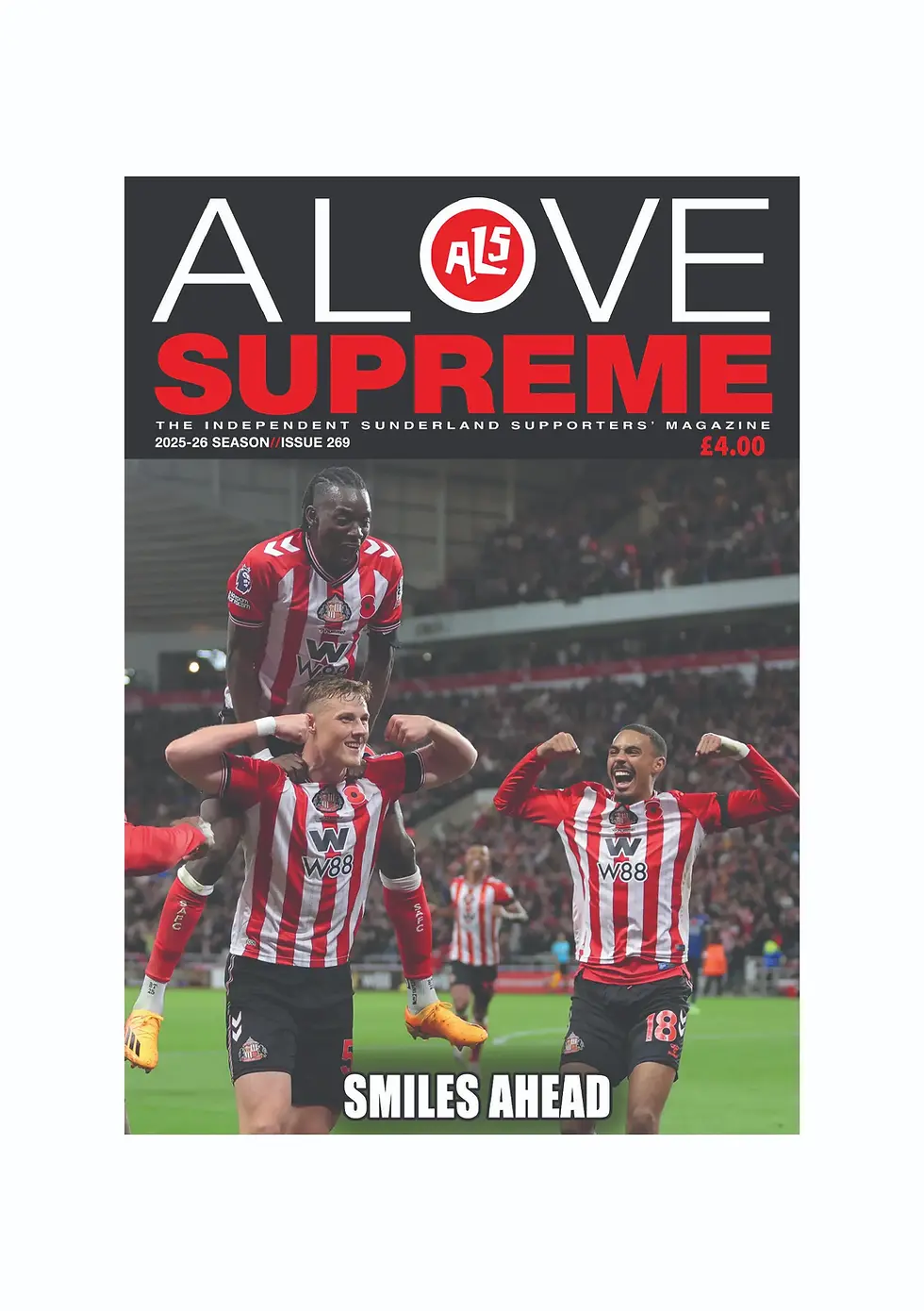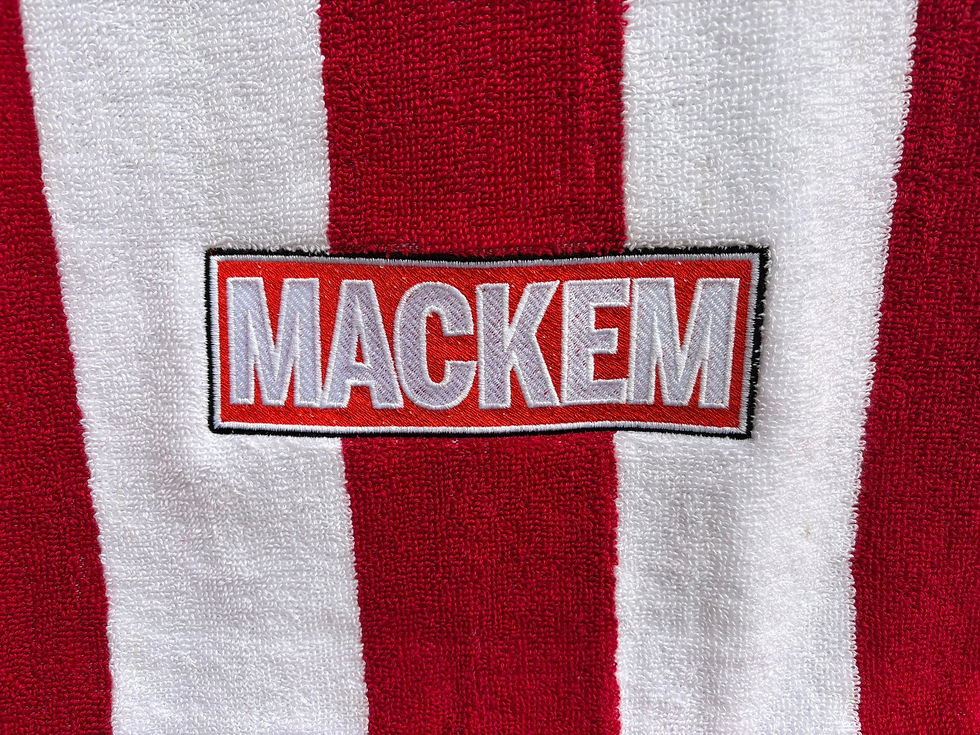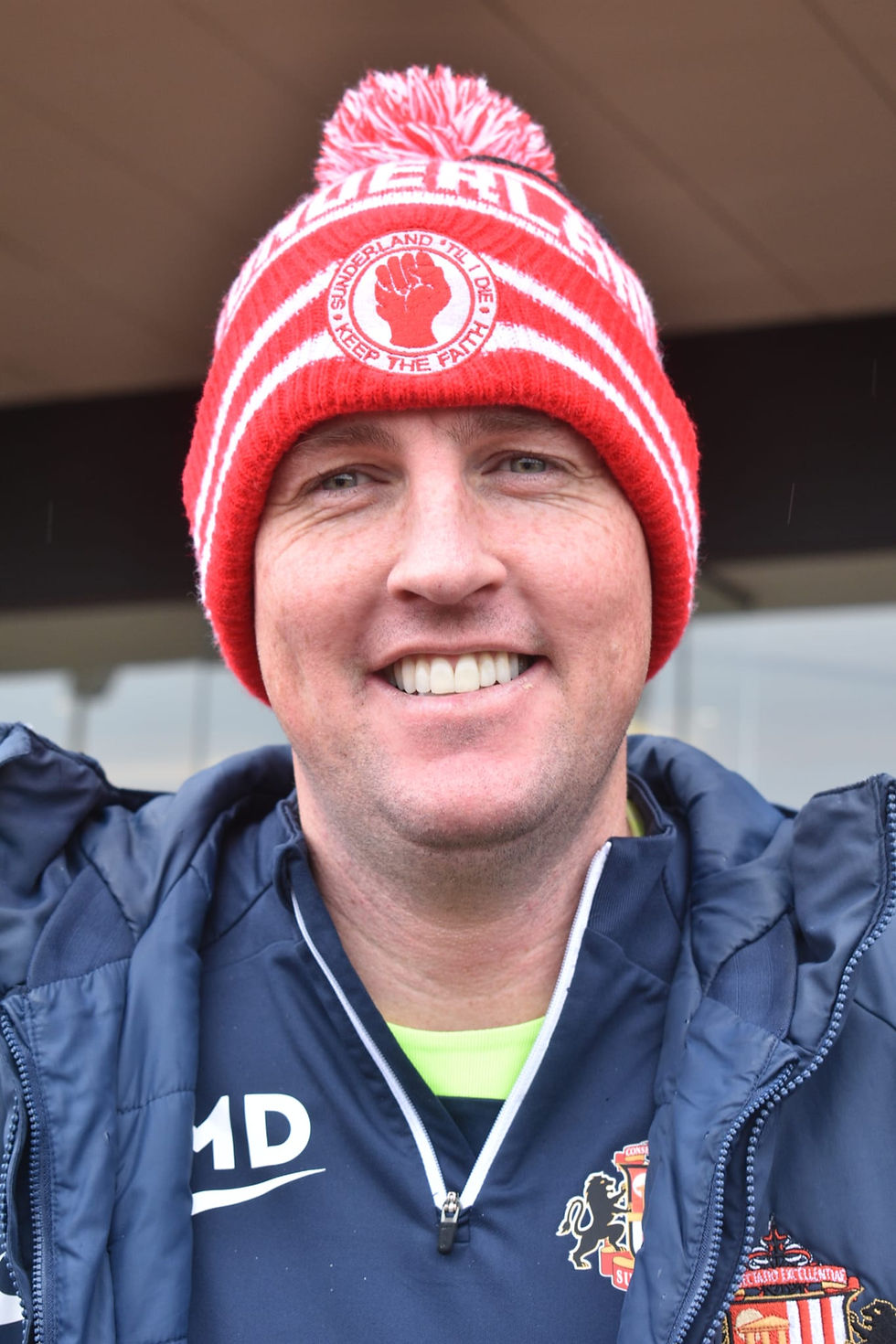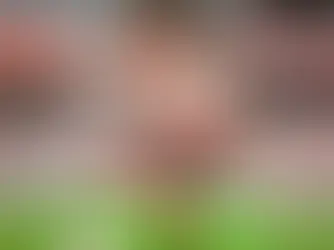OTD: LAST EUROPEAN GAME AT ROKER
- BY SOBS
- Oct 24, 2025
- 4 min read

On this day in 1973, Sunderland played against Sporting Lisbon in what would be the last ever European game to be played at Roker Park.
In October '73, we were still in three competitions (League, League Cup, and Cup Winners’ Cup), with the defence of the FA Cup yet to begin.
Aware of the potential fixture congestion that the pursuit of success on so many fronts could bring, Bob Stokoe strengthened our attack by bringing in Rod Belfitt from Everton – and having played at Ipswich, Everton, and Leeds, we’d actually heard of him – but he didn’t feature in this match.
As we’d beaten Vasas Budapest home and away in the previous round, it was Sporting Lisbon who came to town on Wednesday 25th. We came into the game in tenth place, with everybody else wanting to show the FAC Cup holders a thing or two, although we’d just won 2-0 at Fulham the preceding weekend. In the Cup Winners’ Cup at that time, five substitutes could be named.
With this in mind, our gaffer chose Trevor Swinburne (ten appearances, and the first goalie to be named as a Sunderland sub in a competitive game, I believe – although I’m happy to be proved wrong), Ray Ellison (two Sunderland appearances, after five in five seasons at the Mags), Bobby Mitchell (three appearances), John Lathan (eventually 18 goals in 62 appearances), and Mick McGiven (eventually12 goals in 126 games) – hardly the most experienced back-up, but there were far fewer players in the squads at all clubs in 1973.
Monty
Malone Watson Young Bolton
Horswill Porterfield
Kerr Hughes Halom Tueart
That was the way we played then, 4-2-4 switching to 4-3-3 or 4-4-2 and back depending on how the game was going, and that tactic had served us well in the previous season’s FA Cup campaign. Richie Pitt’s career had ended in a heap in front of the Fulwell End against Luton a couple of weeks previously, with his knee being beyond repair, so Dave Young, our 12th man at Wembley, took his place, while Ron Guthrie, who played both games against Vasas, made way for Joe Bolton.
There was a bit of pre-match shenanigans, in which three Sporting players were caught nicking cassettes in Boots in Newcastle, meaning they could only name three subs. The Boots Three, as they should have become known, were fined £20, convicted of shoplifting, and sent home. One of those who did make the bench was Cabral (obviously not his namesake who spent most of his brief Sunderland career smoking tabs outside nightclubs, amongst other less savoury habits).
Damas, Manaca, Pereira, Fraguito, Laranjeira, Alhinho, Faria, Fernandes, Yazalde, Canotilho, Nando. Subs: Cabral, Valter, Tome.
It was a proper football evening, floodlit and a bit damp, with the Roker Park turf gleaming emerald green, apart from the goalmouths which by late October had assumed the more traditional 1970’s muddy brown hue. Red and white stripes against green and white hoops made it a colourful affair to add to the general atmosphere. The crowd was a decent enough 31,568, but it could and should have been more – our board had upped the prices for European games to pay for something or other, and that probably put off a few folks. Not me or the rest of the cream of South West Durham’s self-styled Fit Young Men- although my experience in getting tickets for the Vasas home game had convinced me that it wasn’t worth queuing overnight for one.
The game was one in which we faced more illustrious opposition than in the previous round, so we were very much the underdogs – but once again we revelled in that tag. Despite the visitors sporting Argentinian Hector Yazalde, one of the world’s top strikers at the time, it was Billy Hughes who starred up front. He had one of his finest games in the stripes, putting on a swashbuckling show in which he showcased his full range of skills. It’s no exaggeration to say that he left defenders on their backsides as he slalomed goalwards and that certainly helped to add a few volts to an already electric atmosphere.
However, it was captain Bobby Kerr who got the first goal when his shot looked to have been taken securely enough by their keeper, who then stumbled backwards and carried the ball over the line – to a deafening roar which contained more than a few giggles. Not that many, though, as we knew Sporting were just about Portugal’s top team at the time and any over-confidence would probably see us punished. There was confidence, certainly, but Bobby Kerr made sure his marras kept their heads.
Going in at half-time a goal up against the likes of Sporting Lisbon was a great feeling and we expected more of the same high-tempo stuff in the second half, with Vic Halom’s boisterous work against the visiting defence allowing more Billy Hughes magic. The Lads didn’t let us down, and never eased their work-rate, which makes the decision not to use any subs difficult to understand given how the game’s changed since then. At the time, you didn’t change a winning team, simple as that, unless there was a serious injury – tactical substitutions just weren’t considered. Just after the hour, with Watson and Young keeping Yazalde quiet, Micky Horswill doubled our lead to send the crowd wild and had us wondering if the OK would be running a bus to the away leg in the next round and if we could nick off school to get there.
The game remained a lovely and entertaining one, with our visitors probably a bit taken aback by the quality of football we produced – we were, after all, a second division club – but with only five minutes to go, Yazalde at last got away from our defence to snatch a goal that was no more than a consolation on the night, but would prove to be our undoing as an away goal. The second leg saw Sporting introduce us to European football's version of “professionalism” with all manner of cunning stuff, that we all now take for granted in any competition, which saw them through.
To put things into context, we won that home leg a lot more convincingly than the scoreline suggests, and Yazalde ended up with 46 goals that season as Sporting finished Portuguese champions. Above all, we provided a great night’s entertainment which showed that we were more than worthy of our place in the competition.





















































